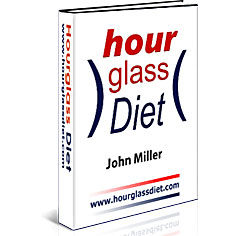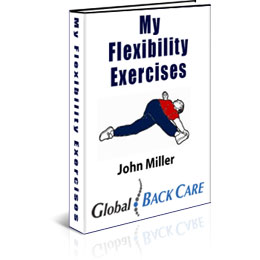I’m a big fan of the British television program ‘Embarrassing Bodies’ where regular folk appear on the program with all manner of personal health problems, some of them quite intimate. Many of the problems appear to come from out of the blue; an infection, an embarrassing abnormality, a genetic defect. I stand in awe of the way people expose the most personal parts of themselves in the way they do. They contribute to a compelling and helpful public health service.
I also hold the doctors in high regard. They travel the country seeking out people who have an embarrassing problem that they’ve been keeping to themselves for a long time. It is with uncanny skill that these doctors have opened the doors of embarrassment to provide us with an insight into what the practice of good medicine is all about.
Together with the surgeons to whom people are often referred, the things they are able to do to help get their bodies functioning properly are sometimes truly astounding. It’s the same with the Australian television program ‘RPA’ based on cases dealt with at the Royal Prince Alfred Hospital in Sydney. The treatment people received is often beyond comprehension.
This is medicine at its best.
Junk Medicine
Having said that, an increasing number of health ‘incidents’, are personally-generated dysfunctions (not diseases) of particular body systems
- metabolic
- musculo-skeletal and
- psychological.
Our surgeries are full of people in just plain bad condition, the symptoms of which are high blood pressure, adult onset diabetes, cardiac insufficiency, depression, reflux, piles, low back pain … the list goes on and on.
Increasingly these dysfunctions are being treated by drugs that mask the symptoms and don’t restore poor function to good. The health of the client gets worse. In medical parlance this practice is known as ‘preventive health’. On the contrary, it’s junk medicine that bares little resemblance to the best practice that’s exhibited in the medical programs on TV.
With respect to the personally generated dysfunctions, the good news is that if a condition is personally-generated there’s a fair chance that it can be personally ‘ungenerated’. It’s a matter of looking after yourself, based on the principal that if you improve your fitness you’ll improve your health. On his death bed Pasteur said, ‘Not the germ, the host’. Look after the host.
You need a heath defrag.
If you’ve ever watched your computer defrag you’ll notice that over a short period of time your screen will go from this
![]()
… to this:
![]()
In computer speak, the act of defragging refers to the process of rearranging data on a disk so that it is stored sequentially rather than randomly, thus decreasing total access times.
Here’s the sort explanation from Lifehacker.com.
‘When your computer writes data to your drive, it does so in “blocks” that are ordered sequentially from one side of the drive’s platter to the other. Fragmentation happens when those files get split between blocks that are far away from each other. The hard drive then takes longer to read that file because the read head has to “visit” multiple spots on the platter. Defragmentation puts those blocks back in sequential order, so your drive head doesn’t have to run around the entire platter to read a single file.’
The animated image of what’s going on says it better than a thousand words.
Extending the computer metaphor, if you want your body to work more efficiently, you need a metabolic, musculo-skeletal and psychological defrag.

It takes a bit longer than a computer defrag, but has a corresponding effect – you feel better.
Metabolic Defrag

Most of the metabolic dysfunctions arise from a lack of aerobic fitness and a diet containing too much of the foods that are not good for you and too little of the foods that are.
You can fix the aerobic fitness part; start walking, shuffling, jogging, cycling, swimming …, doing what ever it takes to get more oxygen into your body. At the same time you’ll be getting out of your system the toxic wastes you produce yourself and the wastes of a toxic environment. You’ll feel better.
If you wish to measure your aerobic fitness, see how many laps you can walk, shuffle, jog or run between two lines, 20m apart in 5 minutes. Over 50 laps is excellent. Over 40 laps is good. Over 30 laps is fair. Under 30 laps is unfit.

Is there anything stopping you from eating wisely? Is there anything stopping you from laying off the garbohydrates (yep, that’s ‘g’ not a ‘c’) for a few weeks. The garbohydrates are flour and sugar mixed with fat in a range of combinations. It’s high energy density food. it’s food designed to cause inflammation.
If you want to feel better, eat from the top of the hourglass – meat/fish/chicken (mefich), vegetables and fruit. If you’re a vegetarian you’ll know what to replace the mefich with.
Musculo-Skeletal Defrag

By and large most musculo-skeletal dysfunctions are caused by poor alignment of bones, the underlying cause being muscles that are weak and tight. By becoming stronger and more flexible and retraining the muscles to do the job they are designed to do, there’s a good chance you’ll get your body back into better alignment and the pain will disappear.
Psychological Defrag

Without going into the more serious psychological dysfunctions (schizophrenia, bipolar …), mood is enhanced when you eat better and when you exercise more. It’s probably as much related to metabolic dysfunction as anything else. Twelve months of regular vigorous physical activity is a more effective remedy for depression that a twelve month course of Prozac.
Always remember that your mind is as much a part of your metabolic system as the key organs that are located under your skin, somewhere between your nose and your back side.
Of course the mind plays tricks on us all. Things are not always what they seem to be. The stresses of life can bear down on us, personal relationships sour, we end up in the job that sucks all vitality from us.
When it comes to stress, two quotes from Epictetus (A.D. c. 55 – 135 ) highlight the issue at stake:
‘Man is not worried by real problems so much as by his imagined anxieties about real problems.’
‘It’s not what happens to you, but how you react to it that matters.’
If you’re spiralling down, step back. Take a holiday. Then embark on a journey of personal development.
In the meantime stay tuned, highly tuned and keep defragmenting!
If you’d like to know more click on the book covers.
[ezcol_1third] [/ezcol_1third] [ezcol_1third]
[/ezcol_1third] [ezcol_1third] [/ezcol_1third] [ezcol_1third_end]
[/ezcol_1third] [ezcol_1third_end] [/ezcol_1third_end]
[/ezcol_1third_end]
